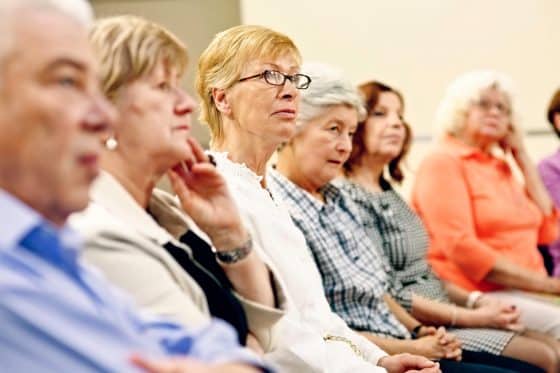How Older Adults Benefit from Lifelong Learning

While many people believe that school is only for children, that couldn’t be further from the truth. Seniors can learn new skills and expand their education too, and many retirement and senior living communities offer opportunities for lifelong learning.
What Is Defined as Lifelong Learning?
Lifelong learning is the ongoing process of educating yourself and building new skills over time. For seniors, this could include advanced education, reading or listening to a presentation or it could include learning a new hobby, trying a new activity or traveling to a new place.
Many senior living communities partner with professional instructors for seminars and workshops. They may offer on-site learning resources and access to online courses to give residents the chance to pursue lifelong learning in a variety of settings.
The Benefits of Lifelong Learning
Improved Cognition
Perhaps one of the best benefits of lifelong learning is the chance to improve your cognitive health. By learning something new, you will challenge your brain and continue to strengthen it, similar to strengthening your muscles during exercise.
Improved cognition will result in better memory recall, problem-solving and faster thought reactions. Participating in activities that challenge your brain and use your hands, such as knitting or painting, will also strengthen your hand-eye coordination.
Reduced Risk of Certain Diseases
While not all cognitive diseases can be prevented, some can be delayed or lessened with the practice of lifelong learning. For example, when you exercise your brain through learning activities, you can reduce your risk of developing some forms of dementia, like Alzheimer’s disease.
Learning new activities that require physical activity can also prevent some diseases and conditions from developing. For example, high blood pressure can cause serious complications, but it can be drastically reduced or prevented with exercise. By learning a new type of exercise, like dance or yoga, you can improve your cognition and physical health and help ward off high blood pressure.
Promoted Emotional Health
Many older adults struggle with emotional and mental illnesses, such as depression. However, participating in a journey of lifelong learning can boost your mood and help alleviate symptoms.
Learning new things can also boost your self-esteem. You can watch yourself grow your knowledge on a topic and share your insights with others.
If you decide to take classes alongside others, you will inevitably form new social connections. This provides the opportunity for your social well-being to grow, and it can prevent you from feeling lonely or isolated.
Overall, participating in lifelong learning is a beneficial activity seniors can do to improve their health. If you are looking for a retirement living community that values lifelong learning and provides enriching programming for you to grow and thrive, consider taking a tour of The Davis Community in Wilmington, North Carolina.